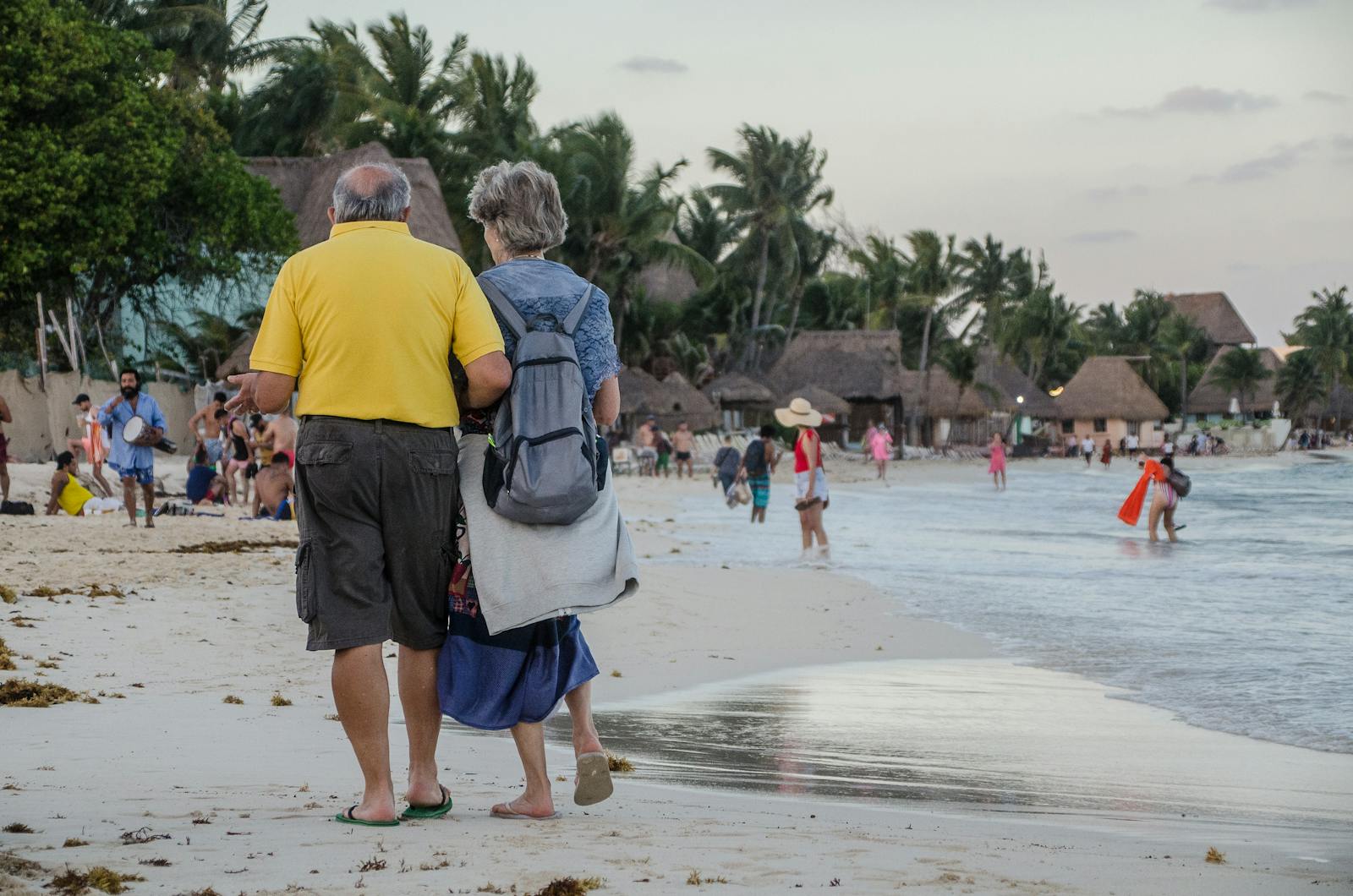Traveling internationally is an exciting opportunity to explore new cultures, experience breathtaking landscapes, and enjoy time away from everyday routines. For older adults, international travel can be particularly rewarding, offering unique opportunities to see the world and create lasting memories. However, there are also specific factors to consider when planning trips abroad to ensure that the experience is not only enjoyable but also safe and comfortable. In this guide, we will explore 15 key considerations for older adults when planning international travel, from health preparations to packing tips.
1. Consult with Your Doctor
Before embarking on any international trip, it’s essential to have a medical consultation to assess your health and fitness for travel. Older adults, especially those with chronic conditions or taking medications, should discuss their travel plans with their healthcare provider. This consultation can help address concerns such as managing medical conditions, getting necessary vaccinations, or understanding how to handle potential health issues abroad.
Your doctor can also provide specific advice on travel vaccines or preventive medications for diseases that may be prevalent in your destination, such as malaria or yellow fever. It’s also a good time to ensure you have all necessary prescriptions for the duration of your trip.
2. Obtain Comprehensive Travel Insurance
Travel insurance is particularly important for older adults, as it can help cover unforeseen medical expenses, trip cancellations, or disruptions. When purchasing travel insurance, make sure to opt for comprehensive coverage that includes medical evacuation, in case you need to be transported back to your home country for medical care.
It’s also important to check whether the policy covers pre-existing conditions, as some plans exclude these from coverage. Look for a policy that meets your specific needs, including coverage for lost luggage, delayed flights, or any unexpected situations that may arise during your trip.
3. Choose Senior-Friendly Destinations
Not all destinations are equally suited for older adults, especially those who may have mobility concerns or require easier access to healthcare. When planning international travel, consider choosing senior-friendly destinations that offer good healthcare services, easy transportation options, and accommodations that are comfortable and accessible.
Look for destinations with walking-friendly cities, availability of public transportation, and easy access to major attractions. Some places are better equipped to handle older travelers, offering guided tours that cater specifically to senior groups.
4. Plan for Mobility and Accessibility Needs
If you have mobility issues or concerns about navigating through airports, cities, or tourist sites, it’s essential to plan for accessibility. Check with airlines about special assistance services, such as wheelchair access, transportation to and from the gate, or priority boarding. Many airports and travel hubs offer assistance to passengers with mobility challenges, so inquire ahead of time to make arrangements.
When booking accommodations, confirm that your hotel or rental is accessible and equipped with elevators, ramps, or ground-floor rooms. Similarly, research whether popular attractions at your destination offer wheelchair access, guided tours with minimal walking, or shuttle services.
5. Pack Light but Smart
As an older adult, packing light can make your travel experience far more enjoyable and manageable. Focus on packing versatile, lightweight clothing that can be layered to accommodate different climates, and don’t forget comfortable walking shoes.
It’s also important to pack all necessary medications and medical supplies in your carry-on luggage in case your checked luggage is delayed or lost. Bring enough medication for your entire trip, plus a few extra days’ worth, and keep a copy of your prescription in case you need a refill abroad.
In addition to clothing and medications, consider packing compression socks for long flights to reduce the risk of blood clots and a small travel pillow to make your journey more comfortable.
6. Consider Time Zones and Jet Lag
Jet lag can affect travelers of all ages, but it can be more difficult for older adults to adjust to significant time zone changes. To minimize the impact of jet lag, try adjusting your sleep schedule a few days before departure to align more closely with the time zone of your destination.
Staying hydrated during flights, getting up to stretch and move around during long trips, and spending time in natural daylight upon arrival can help ease the transition. Some travelers find that taking short naps during the day upon arrival can also help fight off the fatigue caused by jet lag.
7. Keep Important Documents Easily Accessible
International travel requires careful organization of your important documents. Make sure to have your passport, visas (if required), boarding passes, and travel insurance documents in an easily accessible spot in your carry-on bag. It’s also wise to keep a digital backup of these documents on your phone or email, just in case anything gets lost during your travels.
For older adults, it’s also important to carry a list of emergency contacts, including family members, your doctor, and your travel insurance provider. Having a copy of your medical history and a list of any medications you’re taking can also be helpful in case you need medical assistance while abroad.
8. Stay Hydrated and Eat Healthily
Older adults are more susceptible to dehydration, particularly during long flights or in warmer climates. Make it a priority to drink plenty of water throughout your travels, especially while in transit. Carry a reusable water bottle with you and fill it up at water stations in airports or hotels to ensure you’re staying hydrated.
Additionally, try to maintain a healthy diet while traveling. It can be tempting to indulge in rich or unfamiliar foods, but it’s important to balance your meals with fresh fruits, vegetables, and lean proteins to maintain energy levels and avoid digestive issues.
9. Schedule Breaks and Pace Yourself
International travel can be exhausting, especially when you’re visiting new places and navigating unfamiliar cities. It’s essential for older adults to pace themselves and schedule breaks throughout the day to avoid fatigue. Rather than trying to see everything in a short amount of time, plan for relaxed itineraries with downtime between activities to rest and recharge.
Consider scheduling days where you take a slower pace, perhaps by spending time at a park, museum, or café, rather than engaging in more physically demanding activities like hiking or extensive sightseeing.
10. Prepare for Climate Differences
The weather can vary significantly from one country to another, so it’s essential to prepare for climate differences when planning international travel. Research the weather conditions at your destination ahead of time and pack accordingly. Bring clothing suitable for the local climate, including light layers for warm weather or insulating layers for colder climates.
Older adults should also take extra precautions in extreme climates. In hot, sunny destinations, wear sunscreen, a wide-brimmed hat, and lightweight clothing to protect against heatstroke. In cold climates, ensure you have appropriate outerwear, such as a warm coat and gloves, to stay comfortable.
11. Plan for Currency Exchange and Budgeting
When traveling internationally, make sure to plan for currency exchange and understand the local cost of living to budget accordingly. It’s wise to notify your bank or credit card company about your travel plans to avoid having your card blocked for suspicious activity abroad.
Many countries have ATMs that dispense local currency, but having a small amount of local cash on hand when you arrive is always a good idea for tipping, transportation, or small purchases. Be mindful of currency exchange rates and fees, and avoid exchanging money at airport kiosks, which tend to offer less favorable rates.
12. Stay Connected with Family
For peace of mind, make sure to stay connected with family and friends while you’re traveling internationally. Consider using apps like WhatsApp or Skype to make free calls and send messages over Wi-Fi. Keep your family updated on your itinerary, and check in regularly to let them know you’re safe.
For emergencies, make sure your family knows how to contact you and has the information for your travel insurance provider or local authorities.
13. Be Aware of Health and Safety Risks
Before you travel, research any health and safety risks that may be present in your destination country. Be aware of potential infectious diseases, environmental hazards, or political instability. You can check travel advisories from your country’s government or reputable sources like the World Health Organization.
Additionally, if you have specific health concerns, make sure you know where the nearest medical facilities are located, and carry a list of local emergency numbers.
14. Consider Group Travel for Older Adults
Group travel can be an excellent option for older adults, offering a sense of security and companionship. Many travel companies specialize in organizing senior-friendly tours with itineraries tailored to older travelers, including accessible transportation, slower-paced activities, and healthcare support.
Traveling with a group can also help alleviate some of the stress associated with planning and navigating a trip on your own. Plus, it provides opportunities to meet like-minded travelers.
15. Keep an Open Mind and Enjoy the Experience
International travel can sometimes come with unexpected challenges, such as flight delays, language barriers, or cultural differences. It’s important to approach your trip with an open mind and a sense of adventure. Flexibility and a positive attitude can help you overcome any obstacles and make the most of your travel experience.
Take the time to immerse yourself in the local culture, try new foods, and embrace the unique experiences that come with traveling abroad. The memories you create will last a lifetime, and with the right planning, your trip can be both fulfilling and stress-free.
Conclusion: Thoughtful Planning for a Rewarding Travel Experience
International travel offers older adults the chance to explore new destinations, experience different cultures, and create unforgettable memories. By
following these 15 key considerations, you can ensure that your trip is not only enjoyable but also safe and well-prepared. From consulting with healthcare professionals to packing wisely and planning for accessibility, thoughtful preparation will allow you to relax and fully enjoy your journey. Whether traveling solo, with a partner, or in a group, the world is full of exciting adventures waiting for you to explore.




